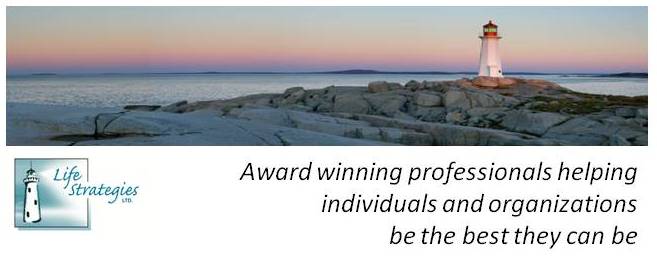
New Year’s marks a time of change for many people – some resolve to work off those holiday pounds, or reconnect with family / friends, while others plan to return to school or transition from one career (or job) to another. In a recent survey, exploring career transition, engagement, and balance, nearly 63% of respondents indicated they were considering a career change in 2012. Some noted external factors for the change (e.g., changes to BC’s employment services contracts, retiree needing to supplement pension), which can be easier to pinpoint than the internal factors noted by respondents (e.g., not happy in their current job or seeking to move onto something else). These internal factors may require a bit more reflection to determine the underlying reason for the anticipated career change (e.g., why aren’t you happy with your current job? Why do you want to move onto something else?). Level of engagement with your current work may be one reason to explore.
The Career Engagement model demonstrates that individuals need to balance the level of challenge with available capacity (e.g., skills, resources, support from colleagues) to be fully engaged. Those who are engaged in their current career are more likely to stay and less motivated to leave. If, however, challenge and capacity are out of balance, an individual will slip into disengagement through one of two ways – becoming overwhelmed (i.e., too much challenge for the available capacity) or underutilized (i.e., insufficient challenge for the available capacity). Although both processes lead to disengagement, they require different interventions.
When considering their own engagement, 70% or more of respondents reported their available capacity and level of challenge was fairly balanced and only a small proportion felt overwhelmed in their current job (i.e., 2% completely, 7% very much). But one’s level of career engagement isn’t the only factor impacting whether or not an individual may be seeking a new career in the New Year. An imbalance between work and life commitments (e.g., a single mom needs an office with day care facilities) is another area our survey explored. The majority of respondents (54%) reported a balanced life (i.e., either completely or very much); unfortunately the remaining 46% are struggling to find balance in their lives.
So why are 63% of our respondents considering a career transition? If they are engaged and have good balance between work/life demands, it’s possible that more external factors (e.g., labour market uncertainty) are at play. The good news is that, if respondents don’t follow through with a career change, their current jobs are working well.
Of those who indicated they were considering a career change, resources most commonly utilized by respondents include: websites (51%), informational interviews (30%), courses (27%), workshops (24%), coaching (22%), and webinars (22%). A small portion (5.4%) noted that they were not using any resources – whether or not this is because they weren’t aware of any or just didn’t feel like they needed any, we don’t know.
For whatever reason, if you are looking at a career transition in the near future, consider searching the Internet for websites or reaching out to your network to find key contacts you can speak with. One resource you may want to explore is Life Strategies’ Career Strategies for a Lifetime of Success workbook which walks you through the career cycle from self-reflection to proactive career management. We’ll also be running an e-counselling workshop based on this book starting January 18th – register here



